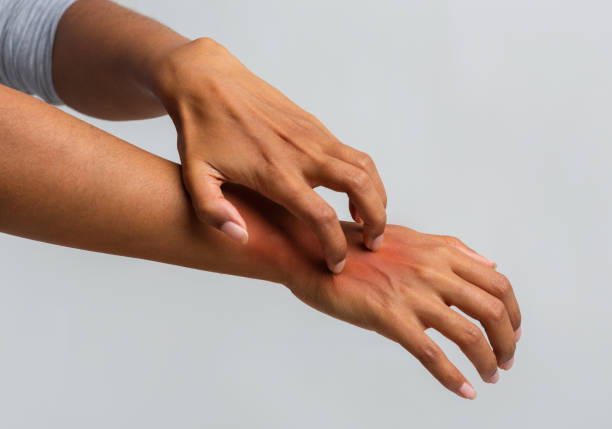
It might not have been easy to hear that you’ve been diagnosed with psoriasis, but now that you know, it’s easier for you to learn how to manage the condition. In this chronic skin condition, your body overproduces skin cells. While there may be periods where there are no symptoms, you’re likely to experience red, flaky patches on your elbows, knees, scalp, and lower back. It stands to reason, then, that you’ll need to take care of your skin and avoid issues that can irritate your condition. Here are a few areas you’ll need to keep an eye on when you’re living with psoriasis.
1. You’ll Need A Specific Diagnosis
It won’t be enough to say that you have psoriasis. The condition comes in different forms that can present with varying symptoms. Knowing which one you’re dealing with will make it easier for your doctor to determine treatment.
For example, nail psoriasis is characterized by nail pitting, color changes in the nail, and occasionally, crumbling nails. To get to the bottom of your diagnosis, your doctor may order a tissue biopsy of the affected area.
2. There Will Be A Medical Regimen
Since this is a skin condition, it’s not surprising that creams and ointments are the first treatment that your doctor will recommend. If these aren’t effective, the next step might be systemic drugs such as acitretin, cyclosporine, or methotrexate.
For moderate to severe psoriasis, biologics can be helpful as they target specific areas of the immune system.
RELATED: 10 Psoriasis Myths Debunked
3. There Are Other Treatment Options
If drugs aren’t enough to keep the condition under control, the doctor can recommend other treatments like phototherapy. In this option, your skin would be exposed to ultraviolet light two or three times per week.
While it can have a positive effect on psoriasis, it can also make dark spots more noticeable on black skin.
3. You’ll Have To Be Careful With Your Skin
If your skin is injured in any way, you run the risk of having a flare-up. That means you need to avoid nicks, cuts, and any form of irritation. It helps if you moisturize well, use sunscreen, and apply cold compresses to soothe itchy skin. It may be tempting to scratch irritated areas, but it’s better to use creams to ease the issue.

4. A List Of Triggers Can Help
As with other skin disorders, there are certain things that can trigger a flare-up. These may not be the same for everyone, but a few of the factors that you should look out for include stressful situations, certain products, specific foods, and prolonged heat or cold.
5. Your Clothing Matters
Health experts recommend wearing loose-fitting clothing, especially during a flare-up. The constant friction between your skin and the materials can either cause a flare or make the irritation worse. In some cases, specific materials such as wool or clothing with synthetic dyes can affect your condition.
RELATED: Ten Ways To Prevent Psoriasis Flare-Ups
6. There Might Be Lifestyle Changes
If you smoke or frequently drink alcohol, it’s best to reconsider. Studies show that alcohol and smoking can increase your likelihood of having flare-ups as well as cause prolonged inflammation throughout the body.
Smoking, in particular, can affect how well your medication works. Since it’s not always easy to stop smoking, consider talking to your doctor about the options.

7. Changes In Your Diet Might Make A Difference
The link between a specific diet and managing psoriasis needs more research, but some people have had good results with making changes to what they eat.
The aim is to eat foods that fight inflammation, such as fruits, vegetables, whole grains, nuts, olive oil, and fatty fish. If you’re up to making a complete switch in your eating habits, then some experts have touted the effectiveness of the Mediterranean Diet when dealing with psoriasis.
There’s still a lot that doctors need to learn about psoriasis, such as its link to the immune system. Working with the right doctor can ensure that you get the most up-to-date information about treating your condition. To live well with psoriasis requires sticking to your medical regimen, taking care of yourself, and getting the right kind of support. If you have any concerns, make sure to talk to your doctor.









